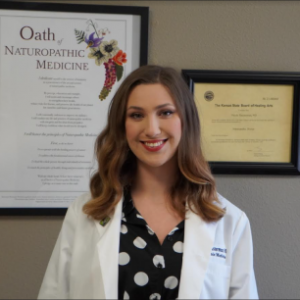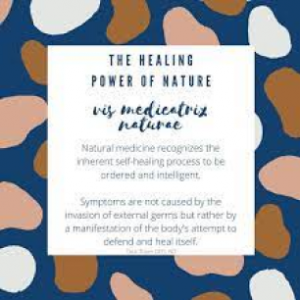Herbal medicine, one of the oldest forms of healing, is experiencing a resurgence in modern times. With increasing interest in natural and holistic health, new trends and research are shaping the field. This article explores these trends and the latest research, providing insights into the evolving landscape of herbal medicine.
The Rise of Integrative Medicine
Integrative medicine combines conventional medical treatments with complementary therapies, including herbal medicine. This approach recognizes the benefits of integrating herbal remedies with mainstream healthcare to provide more comprehensive patient care. Physicians and healthcare providers are increasingly recommending herbs for various conditions, from digestive issues to anxiety, promoting a balanced approach to health.
Popularity of Herbal Supplements
Herbal supplements have become a significant trend in the wellness industry. Consumers are turning to products like turmeric, echinacea, and ashwagandha for their purported health benefits. The market for herbal supplements is expanding rapidly, driven by consumer demand for natural and preventive healthcare solutions. This trend underscores the need for more rigorous scientific research to validate the efficacy and safety of these supplements.
Advances in Phytochemistry
Phytochemistry, the study of the chemicals derived from plants, is advancing our understanding of how herbs work at a molecular level. Researchers are isolating active compounds in plants and studying their pharmacological effects. This scientific approach is crucial for developing standardized herbal medicines that can be used in clinical settings. For example, studies on curcumin, the active compound in turmeric, have shown its potential anti-inflammatory and antioxidant properties, leading to more targeted therapeutic applications.
Clinical Trials and Evidence-Based Practice
The push for evidence-based practice in herbal medicine is gaining momentum. More clinical trials are being conducted to assess the safety and efficacy of herbal remedies. These studies are essential for integrating herbal medicine into mainstream healthcare and gaining acceptance among medical professionals. Recent trials on herbs like St. John’s Wort for depression and Ginkgo biloba for cognitive function are paving the way for broader acceptance and use in clinical practice.
Personalized Herbal Medicine
Personalized medicine, which tailors treatments to individual genetic profiles, is another emerging trend. In herbal medicine, this approach considers a person’s unique biochemistry and genetic makeup to recommend the most effective herbs. This personalized approach can enhance the efficacy of herbal treatments and reduce the risk of adverse effects, providing a more tailored healthcare solution.
Sustainable and Ethical Sourcing
As the demand for herbal medicine grows, so does the importance of sustainable and ethical sourcing of medicinal plants. Overharvesting and habitat destruction threaten many plant species, raising concerns about the long-term availability of certain herbs. Ethical sourcing practices, such as fair trade and sustainable harvesting, are becoming more prevalent to ensure that herbal medicine remains viable for future generations.
The Role of Technology
Technology is playing a significant role in the evolution of herbal medicine. From apps that help identify plants to databases that track herbal research, technology is making information more accessible. Additionally, advancements in biotechnology are enabling the production of plant compounds in laboratories, reducing the need for wild harvesting and ensuring a consistent supply of high-quality herbal ingredients.
Regulatory Challenges
Despite the growing popularity of herbal medicine, regulatory challenges remain. Herbal products are often classified as dietary supplements, which are subject to less stringent regulations than pharmaceutical drugs. This can lead to issues with product quality and consistency. Efforts are underway to improve regulatory frameworks to ensure that consumers have access to safe and effective herbal products. Enhanced regulations will also help build trust in herbal medicine among healthcare providers and patients.
The Future of Herbal Medicine
The future of herbal medicine looks promising, with ongoing research and innovation driving the field forward. The integration of herbal medicine into conventional healthcare, supported by scientific evidence and advanced technologies, will likely continue to grow. As we deepen our understanding of the therapeutic potential of plants, herbal medicine will play an increasingly important role in global health.
Key Trends to Watch
- Integrative Approaches: Combining herbal and conventional medicine for comprehensive care.
- Scientific Validation: Increased clinical trials and research to support efficacy and safety.
- Personalization: Tailoring herbal treatments to individual genetic profiles.
- Sustainable Practices: Ethical sourcing and sustainable harvesting to protect plant species.
- Technological Integration: Using technology to enhance accessibility and production of herbal medicines.
Herbal medicine is experiencing a renaissance, driven by a growing interest in natural health and holistic approaches. Modern trends such as integrative medicine, advances in phytochemistry, and personalized treatments are shaping the future of herbal medicine. As research continues to validate the benefits of herbs and ethical practices ensure their sustainability, herbal medicine is set to become an integral part of modern healthcare. To maximize the benefits of this approach, it is recommended to consult with a herbal doctor for personalized guidance and tailored treatment plans. This ensures that you receive the most effective and safe use of herbal medicine for your specific health needs.






